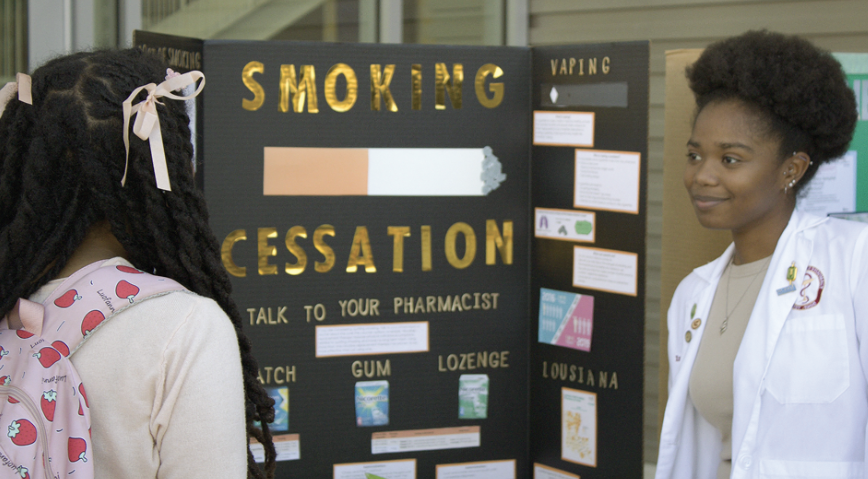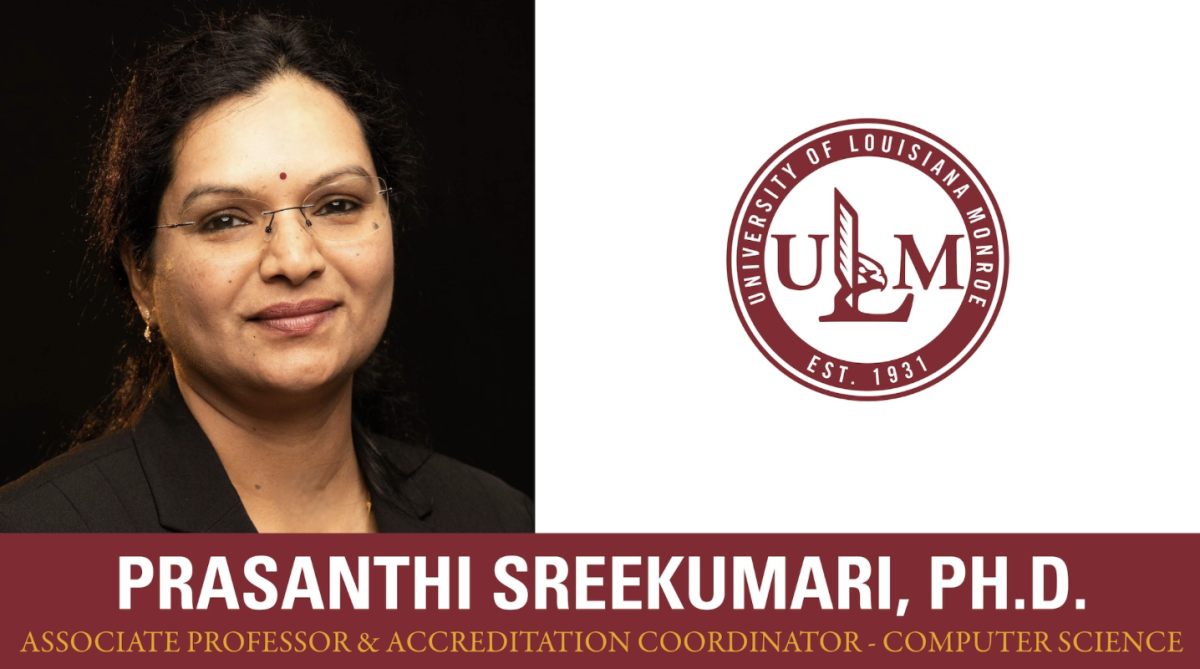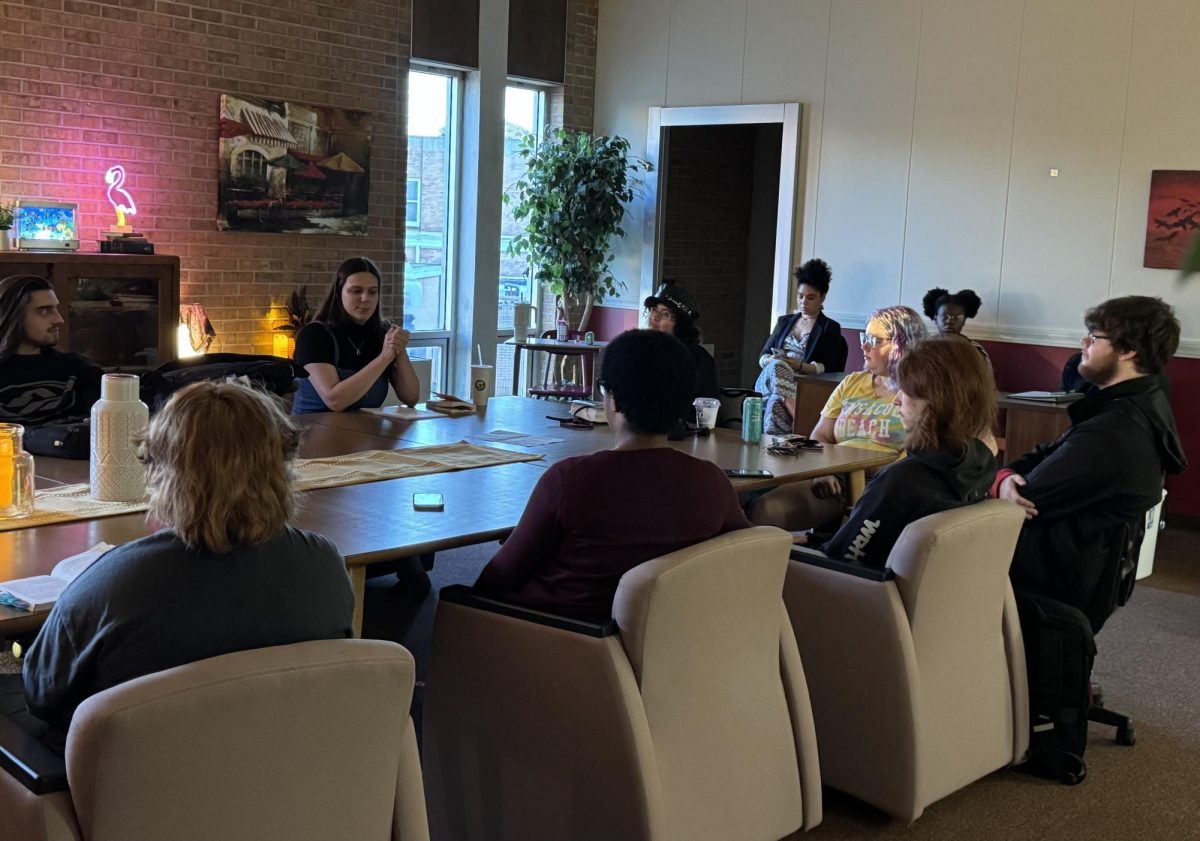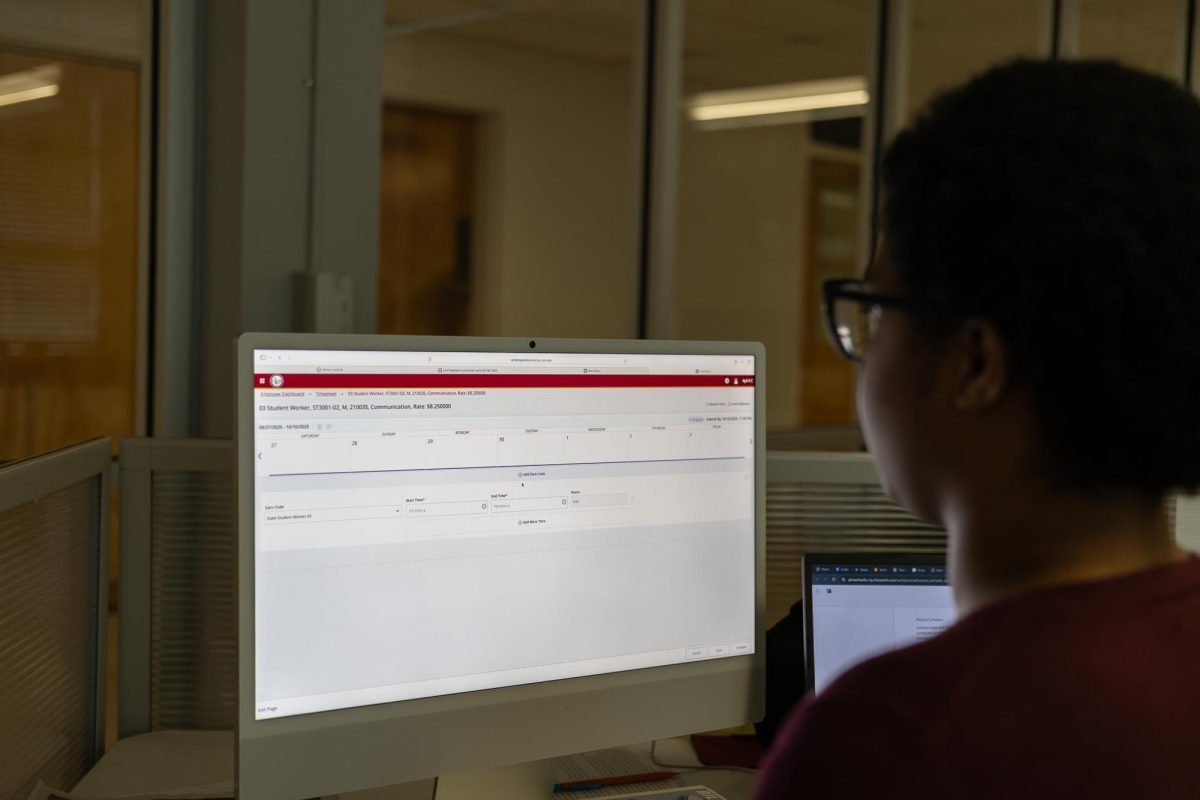ULM’s pharmacy fraternity Kappa Epsilon hosted a health fair on Monday at the HUB in hopes of informing students about their health.
Kappa Epsilon collaborated with six other campus organizations, with each group presenting their own educational boards about health-related issues.
While reproductive health was the most common topic discussed, there were also boards about mental health, the side effects of tobacco use and the importance of immunization.
Students visited the different tables set up by the RSOs and asked questions about maintaining their health.
The Student National Pharmaceutical Association passed out safe sex goodie bags and puzzles to students who stopped by their table.
The American Pharmacists Association-Academy of Student Pharmacists had boards displaying information on men’s and women’s reproductive health.
APhA members Peyton Raborn and Jonathan Vu worked the men’s reproductive health board, which included information on infertility, testicular cancer and STD prevention.
According to the U.S. News & World Report, Louisiana has the second highest STD rate of all the states, with 1,160 per 100,000 people getting diagnosed.
Raborn said that with STD rates rising, especially on college campuses, it’s important to educate people on prevention.
Vu mentioned how many students don’t know they have access to resources on campus. For example, the ULM Health Clinic has free condoms for students who need them.
Sophomore pre-radiologic technology major Ethan Stelly stopped at their table while walking by after work.
Stelly said his school never taught sex education, so he thinks it’s important for health fairs like these to teach college students about reproductive health and safety.
Kappa Epsilon event coordinator and third-year pharmacy student Elise Alford said that many students don’t know their own bodies and, therefore, aren’t aware of what to look for when it comes to staying healthy.
“This is an easy way for them to get informed, and it’s a good way for us to practice counseling people in real life,” Alford said.
By being aware of the signs and symptoms, people can take care of their needs and advocate for themselves.






